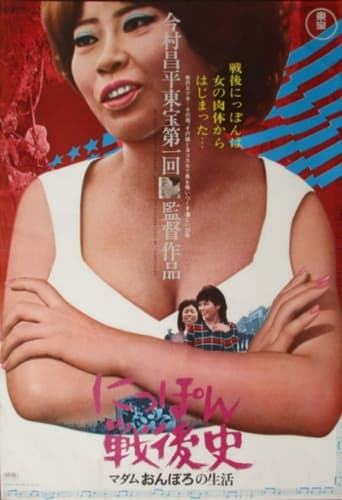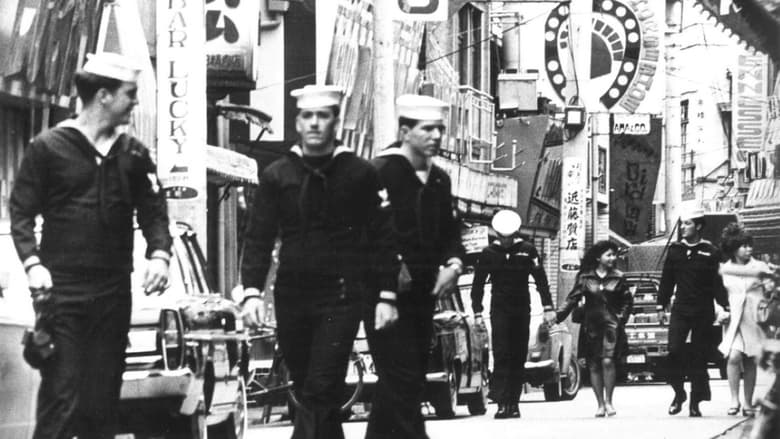

History of Postwar Japan as Told by a Bar Hostess (1970)
Postwar Japan as it is described by Etsuko, the manager of a bar catering to foreigners in Yokosuka. The way of life of a woman brimming with vitality, who skipped the countryside right after the war and, with her womanhood as a weapon, lived through atomic bombings, black markets, prostitution aimed at American soldiers and the Korean War. Inserting newsreels, Shohei Imamura depicts the history of twenty-five years in the Japanese postwar by way of the female body. (doclisboa)
Watch Trailer
Cast


Reviews
It is a performances centric movie
Brilliant and touching
It is neither dumb nor smart enough to be fun, and spends way too much time with its boring human characters.
The best films of this genre always show a path and provide a takeaway for being a better person.
This is a documentary film about history of Japan in 1945-1970. The main narrative takes shape through describing events in one woman's unstable personal life. It consists of archive footage of political turmoil, demonstrations and other news flashes on one hand, and material from interviews with her on the other.In the interview the woman describes her relationships with various men, starting from the age of 15 in 1945. After failed and violent relationships with Japanese men, she starts to seek comfort by prostituting herself to various American soldiers and sailors. This reflects the development of the post-war relations between United States and Japan, which is shown in the background. Yet she seems mostly uninterested in the political patterns evolving around her, and she even actively seeks denial when she is shown photographs of Vietnamese civilian casualties.It's a very interesting perspective into Japanese history - and I have to admit that this contained much about the political history of Japan during 50's and 60's I wasn't previously aware of.
I was looking forward to following up my small Imamura retrospective with the 3-hour long THE PROFOUND DESIRE OF THE GODS (1968), but I had to abort my VHS viewing after the first 10 minutes because the tape was mangled (which, had I been aware of it, I would certainly have rerecorded the film when it turned up again recently during the "After Hours" programme on Italian TV)! In this respect, I have to agree with Michael Elliott's preference of DVD to VHS as one need only turn over the disc to know if it's scratched or not, but with VHS you cannot know beforehand in what state the tape is going to be!! So, I had to make do with the next entry in the Imamura canon that I had scheduled to watch. Well, it turned out to be as dreary and unappetizing as the film's very title would suggest, treating as it does events which would mostly only be familiar to Japanese people anyway. As a matter of fact, only the various scenes of military conflict and political turmoil held some measure of interest for me; indeed, the picture comes off as a very tedious whole, demonstrating that few film-makers can successfully make the leap into the field of documentary (and, frankly, only Werner Herzog comes to mind at the moment).

